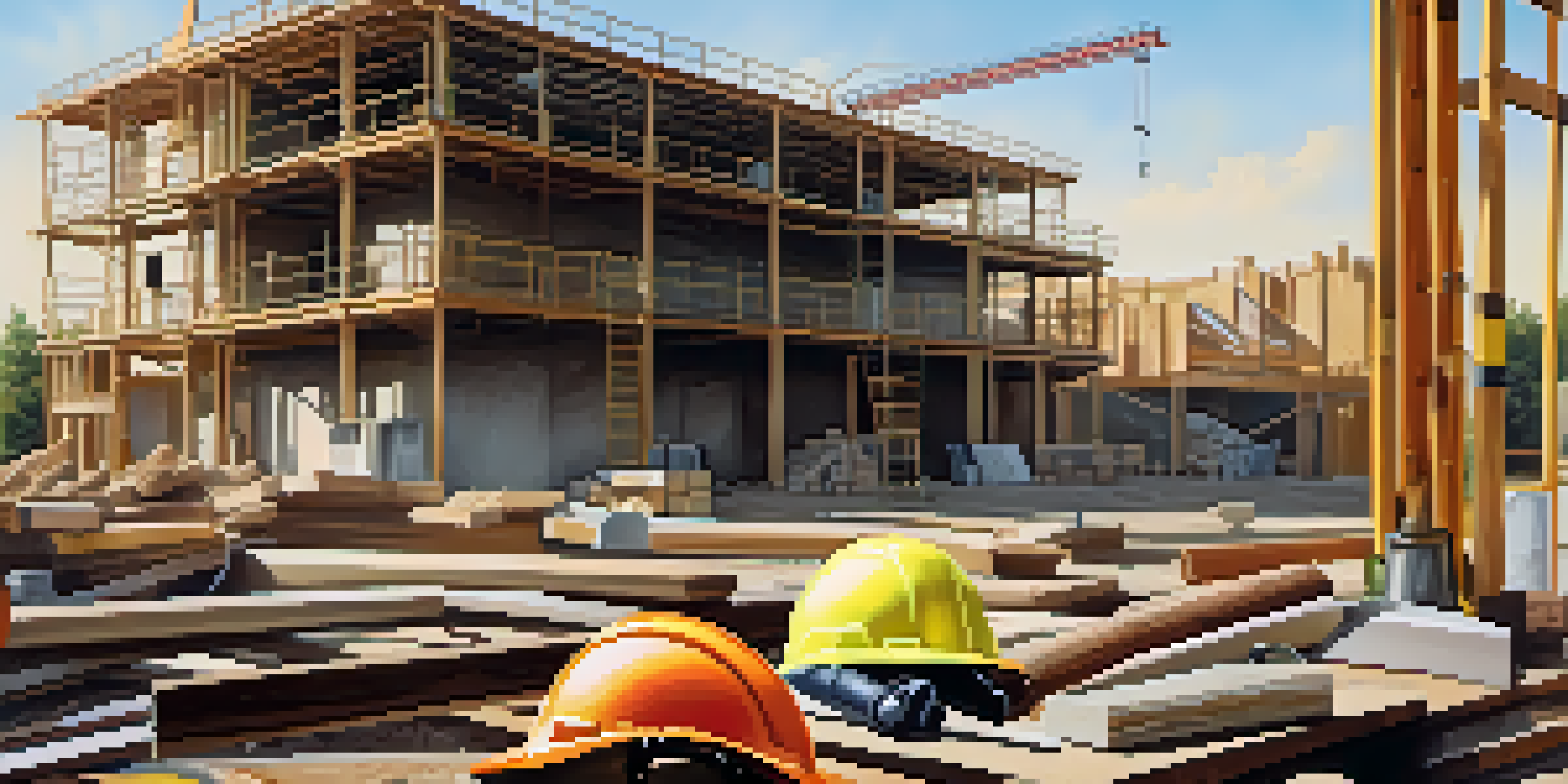Ignoring Building Codes During Home Renovation

What Are Building Codes and Why Do They Matter?
Building codes are regulations set by local governments to ensure safety, health, and welfare in construction. They cover everything from structural integrity to electrical safety, making sure that homes are built to withstand various conditions. Ignoring these codes can lead to serious safety hazards, not just during construction but long after the project is completed.
Safety isn't just a slogan, it's a way of life.
Think of building codes as the rules of a game; they’re there to keep everyone safe and ensure fair play. If players disregard the rules, the integrity of the game is compromised, just like how skipping codes can endanger lives. By adhering to these standards, homeowners can protect their investment and ensure a safe environment for their families.
Additionally, building codes are often updated to reflect new technology and safety standards. Ignoring these updates can mean that your home lacks the necessary features to withstand natural disasters or other risks. In a world where safety is paramount, understanding and following these codes is crucial.
Common Reasons Homeowners Ignore Building Codes
Many homeowners may overlook building codes due to cost concerns. The thought of spending extra on permits and inspections can feel overwhelming, especially when budgets are tight. However, this short-term saving can lead to long-term financial burdens if issues arise from unapproved work.

Another reason could be the misconception that codes are unnecessary for small renovations. Many believe that minor changes, such as updating fixtures or painting, don’t require adherence to codes. Yet, even small modifications can have significant implications on safety and structural integrity, making it essential to consult local regulations.
Building Codes Ensure Safety
Building codes are crucial regulations that protect homeowners by ensuring construction meets safety, health, and structural integrity standards.
Lastly, some homeowners may simply be unaware of the codes altogether. A lack of understanding can lead to unintentional violations during renovations. It’s important to educate oneself or consult a professional to ensure that all aspects of the renovation comply with local laws.
The Legal Consequences of Ignoring Building Codes
Ignoring building codes can result in hefty fines and legal issues. Local authorities have the power to enforce compliance, and failure to adhere can lead to penalties that far exceed the costs of permits. In some cases, homeowners might even face lawsuits from neighbors or other parties if unsafe conditions arise from their renovations.
An ounce of prevention is worth a pound of cure.
Moreover, if a renovation is done without the necessary permits, the homeowner may be forced to undo the work. This can mean tearing down newly added structures or making costly adjustments to align with code requirements. The stress of dealing with these legal ramifications can overshadow the joy of a home improvement project.
In extreme cases, non-compliance could lead to a court order to demolish unsafe structures. This is not only a financial disaster but also a significant emotional toll. Ensuring that all work is up to code is crucial in avoiding these potentially devastating outcomes.
Safety Hazards Associated with Unpermitted Work
One of the most critical aspects of building codes is safety. Homes that are renovated without following these codes can pose serious risks, such as electrical fires, structural failures, or even health hazards from improper ventilation. For instance, a poorly done electrical job can lead to short circuits that endanger everyone in the home.
Furthermore, unpermitted work can create issues with insurance coverage. If a disaster occurs and it’s found that the renovation wasn’t up to code, insurance companies may refuse to pay for damages. This can leave homeowners in a precarious situation with substantial financial losses.
Ignoring Codes Can Be Costly
Failure to adhere to building codes can lead to significant financial burdens, including fines, costly renovations, and decreased property value.
In essence, ignoring building codes can turn a dream renovation into a nightmare. The safety and well-being of a household should always come first, making adherence to codes not just a legal obligation but a moral one.
How to Ensure Compliance with Building Codes
The first step in ensuring compliance is to research local building codes and regulations. Most local municipalities provide resources online or at city hall, making this information accessible to homeowners. Familiarizing oneself with these codes can help avoid accidental violations during renovations.
Next, consider hiring a licensed contractor who is well-versed in building codes. These professionals can guide homeowners through the renovation process, ensuring that all work complies with regulations. Their expertise can save time, money, and the stress associated with navigating these complex rules.
Lastly, always secure the necessary permits before starting any renovation project. While it may feel like an extra step, obtaining permits is a safeguard for both the homeowner and future occupants. It ensures that the work is inspected and approved, providing peace of mind that everything is up to code.
The Financial Implications of Building Code Violations
Ignoring building codes can lead to unexpected costs that far exceed the initial savings. Fines for code violations can accumulate quickly, and the financial burden of redoing work can deplete budgets. Homeowners may find themselves spending far more than if they had followed regulations from the outset.
Additionally, if unpermitted work is discovered during a home sale, it can complicate the transaction. Buyers often request thorough inspections, and any issues can lead to decreased property value or even derail the sale entirely. This potential impact on resale value is a key consideration for any homeowner planning renovations.
Compliance Prevents Legal Issues
Ensuring compliance with building codes helps avoid legal troubles, such as penalties or even court orders to demolish unsafe structures.
Ultimately, investing in compliance upfront is a smart financial decision. By adhering to building codes, homeowners not only avoid penalties but also protect their property’s value and ensure a safer living environment.
Conclusion: The Importance of Building Codes in Home Renovation
In summary, building codes are essential for ensuring safety, legal compliance, and financial security in home renovations. Ignoring these codes can lead to dangerous living conditions, hefty fines, and diminished property value. It’s clear that the risks of bypassing building codes far outweigh any perceived benefits.
As homeowners embark on renovation projects, it’s crucial to prioritize understanding and adhering to local building codes. By taking the time to research and consult professionals, they can create a safe and compliant space that stands the test of time.

Ultimately, responsible renovation not only enhances a home’s beauty but also contributes to the safety and well-being of its occupants. By embracing building codes, homeowners can ensure that their renovation projects are both successful and secure.